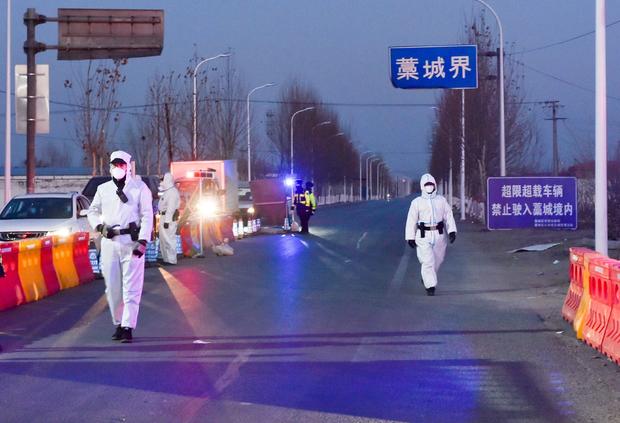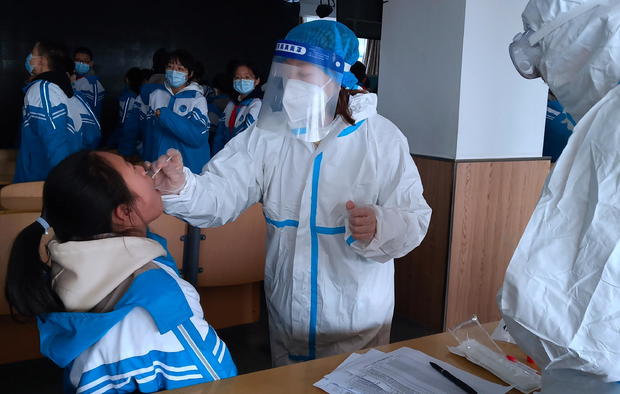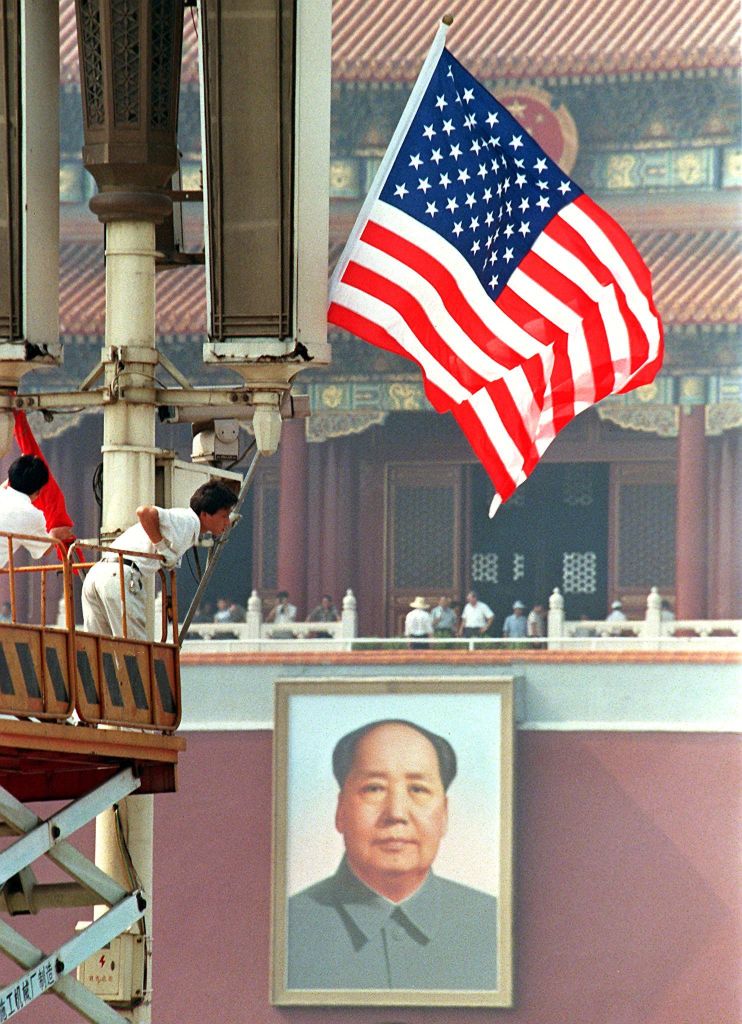China hits city of 11 million with tight restrictions as more than 100 COVID cases discovered
Beijing — Travel has been restricted to a northern Chinese city of 11 million people and schools closed as authorities moved on Wednesday to snuff out a cluster of COVID-19 cases after more than 100 infections were confirmed.
Ten major highways leading into the city of Shijiazhuang, around 200 miles south of Beijing, have been closed and a bus terminus was closed in an attempt to prevent the virus spreading beyond the city in Hebei province.
China's state-run Global Times newspaper said all train ticket sales from neighboring Hebei province into the capital were halted and Shijiazhuang's long-distance bus station closed as officials declared Hebei in "wartime mode" against the virus.
There have been 117 cases in the city, including at least 63 more reported Wednesday. A total of 78 of the cases were asymptomatic, prompting mass testing across the affected area.
Unlike much of the world, China has largely brought the virus under control through strict lockdowns and travel restrictions. But there have been a series of local outbreaks in recent weeks, prompting mass testing and targeted lockdowns.
The village of Xiaoguozhuang within the city boundary has been classified as a "high risk" district and sealed off.
Health authorities said all 40,000 residents in that district have been tested for the virus.
State TV showed villagers being tested by staff in full hazmat suits and protective gear, with roadblocks staffed by police and medical workers.
All schools in Shijiazhuang have been closed.
State broadcaster CCTV showed teams of health workers spraying disinfectant across streets and said an emergency team of medical workers had been sent to the city.
More than 400,000 residents of another nearby city, Nangong, have also been tested, authorities said.
The Global Times quoted Feng Zijian, deputy head of China's Center for Disease Control and Prevention, as telling state TV on Tuesday that the COVID-19 strain causing the cases in Hebei was an imported one, "very likely from Europe," according to the Times.
Feng reportedly said tests were ongoing to confirm which variant of the disease had emerged in Hebei and where it came from. In late 2020 a new, highly infectious strain of the coronavirus appeared in southeast England, which is now blamed for a huge surge in infections across the U.K. British officials have said the variant is between 50% and 70% easier to pass from one person to another.
South Africa has also identified a new strain of the disease, also believed to be more infectious than the ones circulating widely across the globe for a year, and which could prove to have some resistance to the current vaccine formulas being rolled out.
Beijing is racing to vaccinate millions ahead of the country's Lunar New Year travel rush next month.







